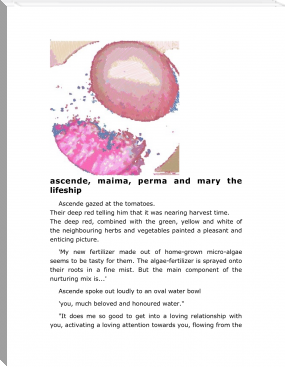The Expedition of Humphry Clinker by T. Smollett (the speed reading book txt) 📕

Read free book «The Expedition of Humphry Clinker by T. Smollett (the speed reading book txt) 📕» - read online or download for free at americanlibrarybooks.com
- Author: T. Smollett
Read book online «The Expedition of Humphry Clinker by T. Smollett (the speed reading book txt) 📕». Author - T. Smollett
At their return to London in the beginning of winter, he, with a heavy heart, communicated these particulars to me in confidence. Before his marriage, he had introduced me to the lady as his particular friend; and I now offered in that character, to lay before her the necessity of reforming her oeconomy, if she had any regard to the interest of her own family, or complaisance for the inclinations of her husband—But Baynard declined my offer, on the supposition that his wife’s nerves were too delicate to bear expostulation; and that it would only serve to overwhelm her with such distress as would make himself miserable.
Baynard is a man of spirit, and had she proved a termagant, he would have known how to deal with her; but, either by accident or instinct, she fastened upon the weak side of his soul, and held it so fast, that he has been in subjection ever since—I afterwards advised him to carry her abroad to France or Italy, where he might gratify her vanity for half the expence it cost him in England: and this advice he followed accordingly. She was agreeably flattered with the idea of seeing and knowing foreign parts, and foreign fashions; of being presented to sovereigns, and living familiarly with princes. She forthwith seized the hint which I had thrown out on purpose, and even pressed Mr Baynard to hasten his departure; so that in a few weeks they crossed the sea to France, with a moderate train, still including the aunt; who was her bosom counsellor, and abetted her in all her oppositions to her husband’s will—Since that period, I have had little or no opportunity to renew our former correspondence—All that I knew of his transactions, amounted to no more than that after an absence of two years, they returned so little improved in oeconomy, that they launched out into new oceans of extravagance, which at length obliged him to mortgage his estate—By this time she had bore him three children, of which the last only survives, a puny boy of twelve or thirteen, who will be ruined in his education by the indulgence of his mother.
As for Baynard, neither his own good sense, nor the dread of indigence, nor the consideration of his children, has been of force sufficient to stimulate him into the resolution of breaking at once the shameful spell by which he seems enchanted—With a taste capable of the most refined enjoyment, a heart glowing with all the warmth of friendship and humanity, and a disposition strongly turned to the more rational pleasures of a retired and country life, he is hurried about in a perpetual tumult, amidst a mob of beings pleased with rattles, baubles, and gewgaws, so void of sense and distinction, that even the most acute philosopher would find it a very hard task to discover for what wise purpose of providence they were created—Friendship is not to be found; nor can the amusements for which he sighs be enjoyed within the rotation of absurdity, to which he is doomed for life. He has long resigned all views of improving his fortune by management and attention to the exercise of husbandry, in which he delighted; and as to domestic happiness, not the least glimpse of hope remains to amuse his imagination. Thus blasted in all his prospects, he could not fail to be overwhelmed with melancholy and chagrin, which have preyed upon his health and spirits in such a manner, that he is now threatened with a consumption.
I have given you a sketch of the man, whom the other day I went to visit—At the gate we found a great number of powdered lacquies, but no civility—After we had sat a considerable time in the coach, we were told, that Mr Baynard had rode out, and that his lady was dressing; but we were introduced to a parlour, so very fine and delicate, that in all appearance it was designed to be seen only, not inhabited. The chairs and couches were carved, gilt, and covered with rich damask, so smooth and slick, that they looked as if they had never been sat upon. There was no carpet upon the floor, but the boards were rubbed and waxed in such a manner, that we could not walk, but were obliged to slide along them; and as for the stove, it was too bright and polished to be polluted with sea-coal, or stained by the smoke of any gross material fire—When we had remained above half an hour sacrificing to the inhospitable powers in the temple of cold reception, my friend Baynard arrived, and understanding we were in the house, made his appearance, so meagre, yellow, and dejected, that I really should not have known him, had I met with him in any other place. Running up to me, with great eagerness, he strained me in his embrace, and his heart was so full, that for some minutes he could not speak. Having saluted us all round, he perceived our uncomfortable situation, and conducting us into another apartment, which had fire in the chimney, called for chocolate—Then, withdrawing, he returned with a compliment from his wife, and, in the mean time, presented his son Harry, a shambling, blear-eyed boy, in the habit of a hussar; very rude, forward, and impertinent. His father would have sent him to a boarding-school, but





Comments (0)